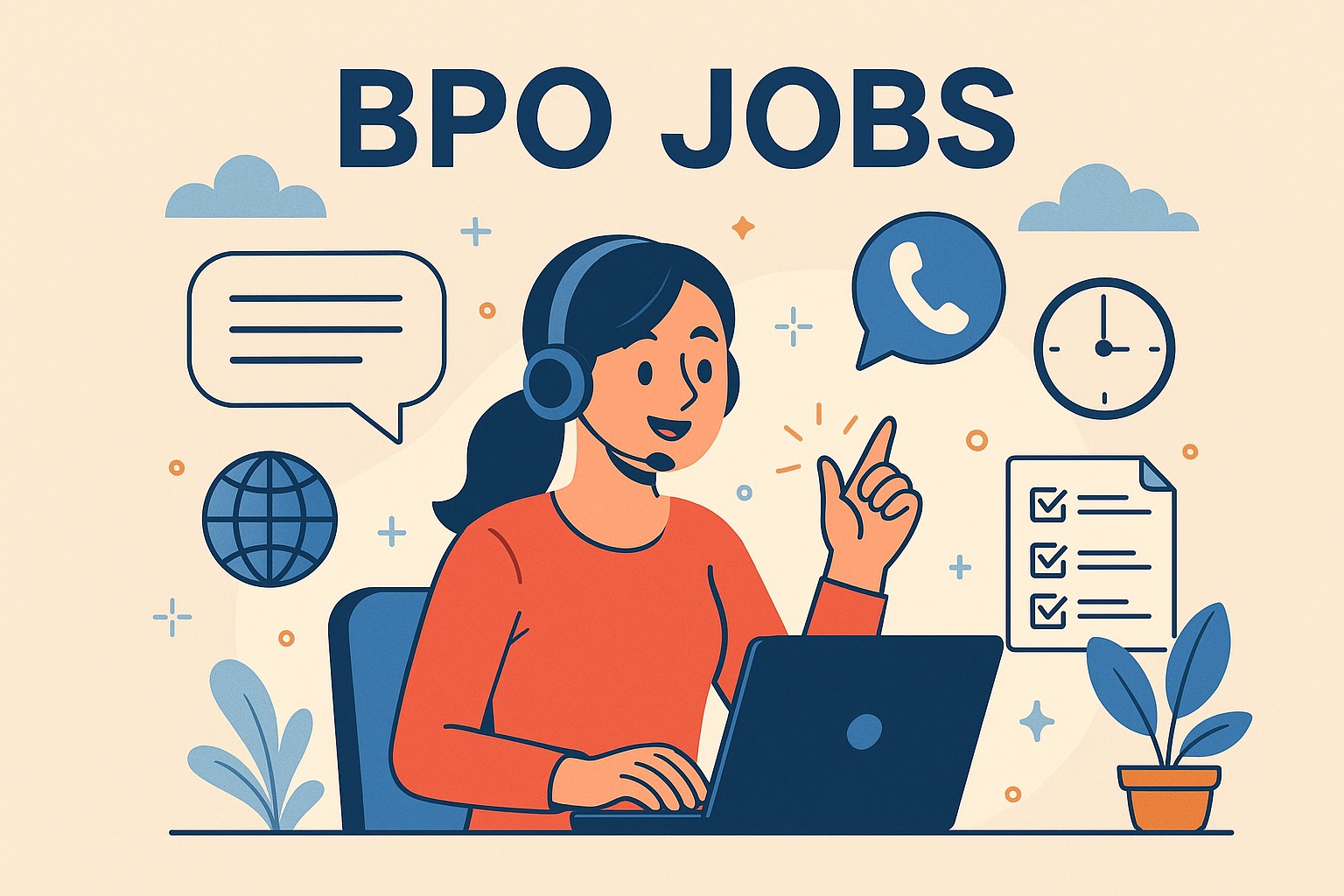The outsourcing industry is no longer just about cost efficiency—it’s about speed, automation, and intelligent operations. As we step into 2025, BPO jobs in India are evolving at an unprecedented pace. Fueled by AI adoption, digital transformation, and strategic acquisitions, the sector is in the midst of a structural shift.
This article explores five major forces transforming BPO jobs in India and what they mean for the future workforce, both in metro hubs and emerging Tier-II cities.
1. BPO Jobs in India Are Shifting from Voice to Digital
Voice-based roles in India’s BPO sector, once the hallmark of outsourcing, have dropped to just 26% of total BPM job openings. As reported by the Economic Times, this shift is being driven by enterprise clients demanding faster, digital-first support solutions.
Today, companies are actively hiring for non-voice roles like transaction processing, content moderation, data tagging, and analytics. These roles require higher digital literacy and are often better compensated.
Not only has this trend disrupted traditional hiring, but it’s also shifted the geographic spread of BPO jobs in India to cities like Jaipur, Indore, and Bhubaneswar—where digital talent is rising fast.
2. AI Is Redefining BPO Jobs in India
Artificial Intelligence is no longer a buzzword; it’s actively disrupting the BPO sector. According to TCS CEO K. Krithivasan, the BPO industry is “ripe for AI disruption.” Speaking to the Economic Times, he emphasized how intelligent automation is already replacing repetitive human tasks in finance, telecom, and insurance domains.
What does this mean for BPO jobs in India?
AI is now capable of:
-
Automating ticket resolution through bots
-
Processing invoices using intelligent OCR
-
Handling customer chat queries with generative AI
While this reduces the need for entry-level call center agents, it opens new roles in AI operations, prompt engineering, and ethical data curation. Professionals who reskill for these opportunities will be well-positioned for long-term careers.
3. Capgemini-WNS Merger Highlights AI-First BPO Model
One of the biggest indicators of the BPO sector’s evolution came with Capgemini’s $3.3 billion acquisition of WNS Global Services, as reported by the Financial Times. The deal underscores how tech-driven outsourcing—backed by domain expertise and AI—is now the standard, not the exception.
Capgemini plans to integrate WNS to form a global delivery network focused on “intelligent operations”. This signals a global shift: companies want not just support services, but predictive analytics, real-time automation, and vertical expertise.
For those in or entering BPO jobs in India, this validates the value of cross-domain knowledge, especially in healthcare, insurance, and banking—sectors WNS specializes in.
4. Tier-II Cities Are Emerging as BPO Talent Hubs
BPO jobs in India are no longer concentrated in Bengaluru, Gurugram, or Hyderabad. With rising infrastructure costs and employee attrition in major metros, companies are shifting operations to Tier-II and Tier-III cities.
Cities like:
-
Jaipur
-
Coimbatore
-
Kochi
-
Indore
…are witnessing a surge in BPO hiring, supported by improved connectivity, hybrid work models, and proactive government support.
Thanks to platforms like Startup India and TCS iON, young professionals from these regions are gaining access to quality upskilling programs, digital tools, and industry internships.
5. Mid-Career BPO Workers Must Prioritize Reskilling
With automation taking over basic roles, mid-career professionals in India’s BPO sector face a choice: adapt or fall behind.
The skills in demand for 2025 include:
-
Robotic Process Automation (RPA)
-
Data analytics
-
AI model governance
-
Cloud infrastructure (AWS, Azure, Google Cloud)
Major firms such as Infosys, Genpact, and Cognizant have launched internal learning academies in partnership with global providers like Coursera and edX to upskill their teams.
In fact, India’s BPO ecosystem is witnessing a shift from “headcount-based” to “skill-based” hiring. Certifications, project portfolios, and domain knowledge are quickly becoming key hiring factors, especially for remote-first or hybrid BPO roles serving international markets.
Conclusion
The days of India’s BPO industry being synonymous with high-volume, low-skill call center jobs are behind us. As artificial intelligence, automation, and global integration reshape the sector, BPO jobs in India are evolving into dynamic, skill-intensive roles.
Professionals who embrace change, upskill regularly, and align with the sector’s new tech-driven model will continue to thrive. For businesses, the message is equally clear: competitiveness in 2025 and beyond will come from intelligent operations, not just labor arbitrage.


